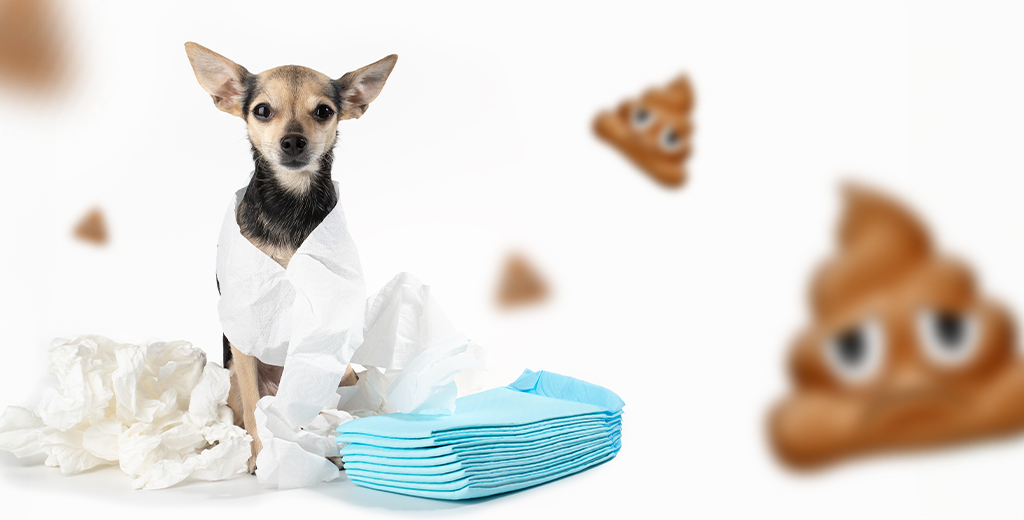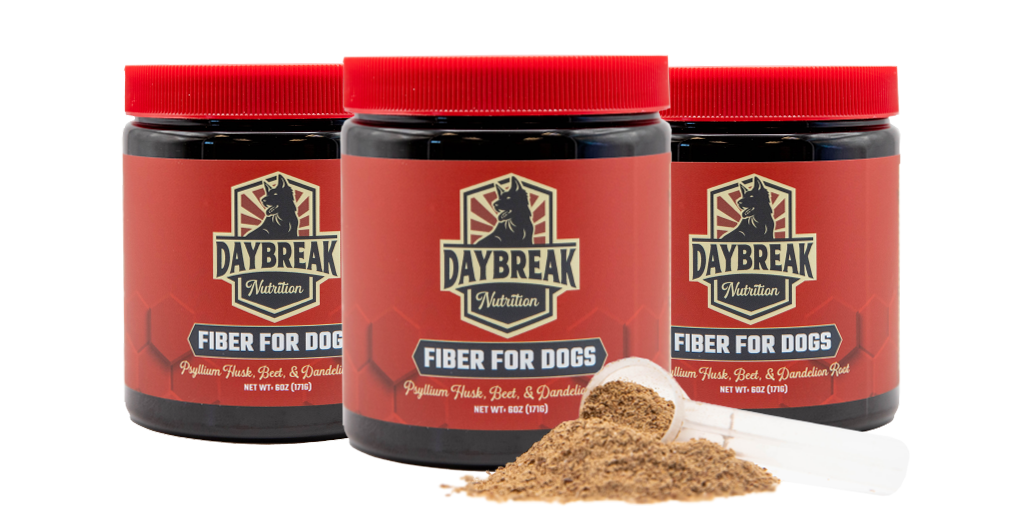Experiencing diarrhea can be uncomfortable for dogs and a concern for their owners.
Diarrhea in dogs can result from various factors, including dietary indiscretion, stress, infections, or underlying health issues.
It’s essential to address diarrhea promptly to prevent dehydration and support your dog’s recovery.
In this post, we will explore five effective tips to help dogs with the runs.
Let’s dive in!
5 Ways to Support Dogs With The Runs
1. Psyllium Husk Fiber
Psyllium husk is a natural fiber that can help firm up loose stools by absorbing excess water in the intestines.
It acts as a bulking agent, promoting healthy bowel movements and improving overall digestive health.
You can mix psyllium husk powder into your dog’s food.
Out of all the psyllium husk supplements my dog has tried, Daybreak Nutrition’s Fiber for Dogs is my dog’s favorite.
Daybreak’s Fiber for Dogs is an excellent choice for managing diarrhea due to its blend of high-quality ingredients like psyllium husk, beetroot, and dandelion root.
This natural fiber supplement promotes a healthy digestive system, providing relief from runs and discomfort while supporting overall gut health.
Formulated without additives or fillers, it ensures your dog receives maximum strength and effectiveness.
Simply follow the directions on the back and you’re good to go!
2. Hydration is Key
Diarrhea can lead to dehydration, which can be dangerous for dogs. Ensuring your dog stays hydrated is crucial for their recovery.
Provide fresh, clean water at all times and encourage your dog to drink.
You can also offer low-sodium chicken or beef broth to entice them to hydrate.
In severe cases, consider an electrolyte solution designed for pets.
3. Dietary Adjustments
Adjusting your dog’s diet is vital during episodes of diarrhea.
A bland diet can help soothe their digestive system and promote recovery.
Consider offering a bland diet consisting of boiled chicken (no skin or bones) and plain white rice or easily digestible foods like pumpkin or sweet potatoes.
Gradually reintroduce their regular food once their stool has normalized.
4. Monitor Their Condition
Keeping a close eye on your dog’s condition is essential.
Monitoring their symptoms can help you determine if their diarrhea is improving or if further intervention is needed.
Keep track of the frequency and consistency of your dog’s stools, as well as any additional symptoms such as vomiting or lethargy.
If diarrhea persists for more than 24 hours or is accompanied by severe symptoms, contact your veterinarian.
5. Consult Your Veterinarian
If your dog experiences ongoing diarrhea or shows signs of distress, consulting your veterinarian is crucial.
They can help identify the underlying cause and recommend appropriate treatments.
Schedule a veterinary appointment to discuss your dog’s symptoms, diet, and any recent changes in their environment or routine.
Your veterinarian may suggest diagnostic tests, medications, or dietary changes to support your dog’s recovery.
Supporting Dog Runs
Supporting a dog with diarrhea involves a combination of dietary adjustments, hydration, and careful monitoring.
By incorporating psyllium husk fiber, ensuring proper hydration, adjusting their diet, observing their condition, and consulting your veterinarian, you can help your furry friend recover more comfortably.
If diarrhea persists or worsens, it’s essential to seek professional advice to ensure your dog’s health and well-being.
With the right care, your dog can bounce back and return to their happy, playful self.
Thank you for reading!

